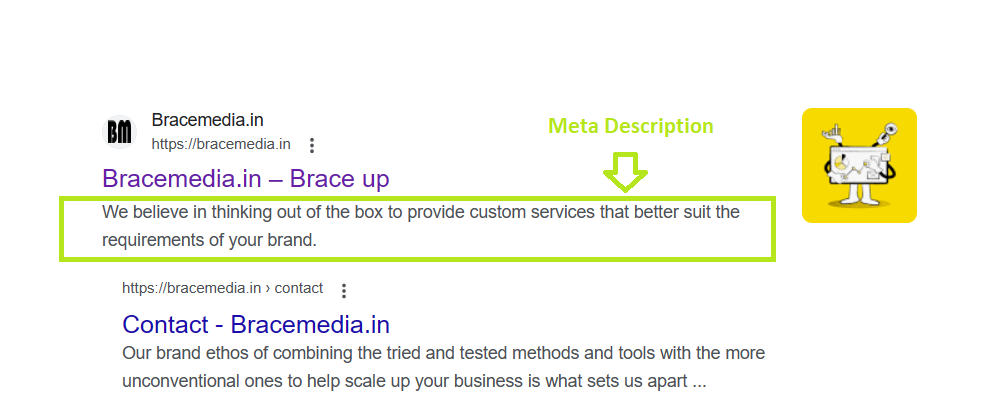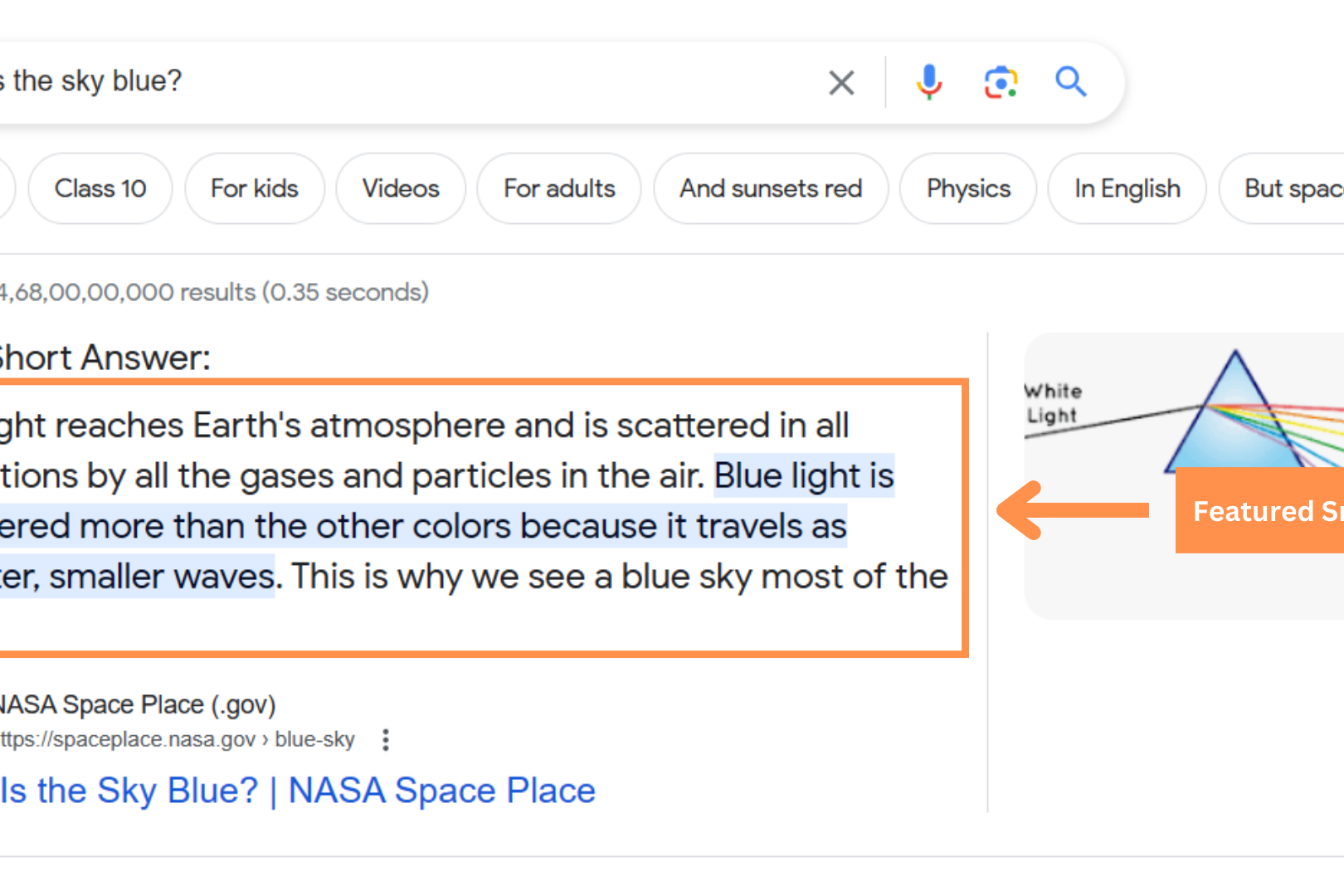As a website owner, you might have heard of the term “meta description” but you may not be entirely sure of what it means and why it is important for your website’s search engine optimization (SEO). In this blog, we will explain what a meta description is, its importance, and how to create an effective one to improve your website’s search engine rankings.
What is a Meta Description?

A meta description is a short snippet of text that appears in the search engine results pages (SERPs) beneath the title of a webpage. Its purpose is to provide a brief summary of the content of the page and entice users to click through to your website.
How are Meta Descriptions Created?
Search engines pull snippets of text for Meta Descriptions from the actual webpage to show to users based on their search keywords. Alternatively, it can also be a text snippet that’s manually entered by the web dev into the site’s code using the tag, <meta name=”description”>. Meta Descriptions written using the tag won’t appear on the actual site itself but can show up in the search results below the page title.

Image Source: Google
That said search engines like Google may not necessarily pick out and display a meta description you have written yourself if the algorithm determines that the description you have provided doesn’t answer the queries of the user. In such instances, the search engine will seek out relevant content from your website and truncate it(if it’s too long) and display it as a Meta description.
Google has a guide for website owners and devs who want to have some say in what content can be used as a snippet which can be found here.
Do Meta Descriptions matter for SEO?
Contrary to what some may say, Meta descriptions don’t directly impact SEO however they do play a vital role in increasing the CTR(click-through rates). An enticing description is bound to draw more users to click on the website which should eventually impact how high the site ranks in a search result.
Here are some of the reasons why meta descriptions are important for SEO:
They help to attract more clicks
As mentioned earlier, a well-crafted meta description can entice users to click through to your website. This increases your website’s click-through rate and can lead to higher rankings in search engines.
They provide a summary of your content
A meta description provides a concise summary of the content of your webpage. This helps users quickly determine whether the page is relevant to their search query.
They improve user experience
A clear and concise meta description can improve the user experience by providing users with a better understanding of what they can expect to find on your webpage.
They can differentiate your website from competitors
A well-written meta description can set your website apart from your competitors and make it more attractive to users.
Tips to write an Effective Meta Description
While Google may get the last say in what to display as a Meta Description, a well-worded description has a high chance of getting picked by the search engine. Let’s take a look at how you can create an effective one for your website:
Keep it concise
Your meta description should be between 50-160 characters in length. This is because search engines typically display only the first 160 characters of the meta description.
Make it unique
Each page on your website should have a unique meta description that accurately reflects the content of the page.
Use keywords
Include relevant keywords in your meta description to help search engines understand the topic of your webpage. Use a keyword search tool to devise your keyword strategy. We’ve compiled a list of free keyword search tools which can be found here.
Write for the user
Your meta description should be written in a way that entices users to click through to your website. Focus on the benefits of your content and make it compelling.
Avoid duplication
Do not use the same meta description for multiple pages on your website. This can confuse search engines and reduce the effectiveness of your meta descriptions.
Test and refine
Continuously test and refine your meta descriptions to improve their effectiveness. Use tools like Google Search Console to monitor your website’s performance in the SERPs and make adjustments as necessary.
Conclusion
In summary, meta descriptions are an important element of SEO that can help to improve your website’s click-through rate and ultimately boost its ranking in search engines. Know what else can boost your site’s ranking? A comprehensive SEO strategy. It is important to consider other factors such as high-quality content, backlinks, and user experience to ensure that your website ranks well in the search engines. Interested in knowing more? Contact our Digital Marketing experts today to get started!
Related Posts
August 9, 2023
What is PPC Marketing? Answered with Pros and Cons
What is Pay-Per-Click Marketing or advertising? We answer that and more with…
August 1, 2023
Featured Snippets on Google: How Do They Work and why should you care?
What are Featured Snippets and how can they improve your website's search…
July 19, 2023
Here’s Why Off-Page SEO Is Just as Important as SEO on Your Landing Page
Discover why off-page SEO is just as crucial as on-page optimization. Learn how…



